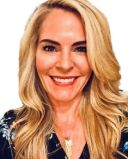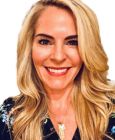Education
I Went to Community College and Proudly Call Myself a Doctor
An open letter to Joseph Epstein in response to his Wall Street Journal column.
Posted December 13, 2020 Reviewed by Kaja Perina

Dear Joseph Epstein,
Calling 69-year-old Dr. Jill Biden a “kiddo," and diminishing her level of education and service to community college education is ageist, sexist, elitist, and so much more.
You degrade Dr. Biden’s degree, stating, “Ed.D., a doctor of education, earned at the University of Delaware through a dissertation with the unpromising title 'Student Retention at the Community College Level: Meeting Students’ Needs.'”
You boldly displayed your values in your op-ed to the Wall Street Journal. Allow me to share three values of my own:
Value #1: Promoting education at all levels
Let’s talk about the importance of promoting retention at the community college level.
According to a 2014 report by the American Association of Community Colleges (AACC), community college-educated workers have higher earnings than workers without any education beyond high school, which has the following benefits:
- Higher income
- Economic stimulation
- Community college students are also less likely to draw on government-funded social services
- Community college students tend to enjoy better health.
Community colleges are more affordable than 4-year universities allowing for greater access to lower income students.
Community colleges offer more flexibility in the number of units students are required to take, which helps parents, those employed full-time, caregivers, and so many others have access to education without the formal structure of a 4-year college.
I am one of the people who benefited from community college retention. I was raised by a single mom of 5 children with no dads in the picture. We were supported by every governmental assistance program available in the 1980s and 90’s. In 1994, during a difficult time in my mom’s mental health journey, when my little brother was in foster care and I was 18 years old working full-time and having lived on my own for 2 years already with no savings, I was at a crossroads: Do I leave my brother to attend a 4-year college that I didn’t know how I could afford, or do I stay local, attend a community college, and visit my little brother weekly to help maintain a sense of family and belonging?
I chose to stay near my brother and attend community college. My retention in community college set the course for my future education and career as a clinical psychologist.
For years I felt ashamed of this decision, believing that attending a community college was somehow “lesser than” and was envious of my peers who had stable homes and attended college out of high school. This belief likely arose from hearing messages like yours, Joseph Epstein; messages that are insidious and harmful. Of course, now I know there is nothing shameful about the educational path I chose. My decision was based on family, hard work, and economic factors.
After 2 years of community college, my mom stabilized, my little brother was no longer in foster care, and I transferred to a 4-year university- The University of California, Santa Barbara (UCSB). Following this, after a couple of years of hard work and volunteering, I enrolled in a doctor of clinical psychology program, PGSP-Stanford PsyD Consortium, embedded in the Stanford University Department of Psychiatry and Behavioral Sciences, and this is where after 6 years of hard work and service, I earned my doctorate.
This was followed by a post-doctoral fellowship at Emory University Department of Psychiatry and Behavioral Sciences where I won the Emory School of Medicine’s Department of Psychiatry & Behavioral Sciences Richard W. Morrell Community Commitment Award. I won this award from my clinical work and advocacy that was born from the first-hand experience of receiving countless community benefits as a child, and through my attendance at community college as a young adult.
I then had a 10-year career at the Atlanta VA Health Care System, where my patients and colleagues affectionately called me “Dr. Koepp." I worked with and trained hundreds of MDs, Social Workers, Nurses, Administrative staff, you name it.
For my service to our nation's Veterans, I received a personal letter by Robert A. McDonald, Former Secretary of Veterans Affairs, thanking me for outstanding professional service to our nation's Veterans. He didn't have a problem entitling his letter to me "Dr. Koepp", but somehow you do.
As a new professional, I struggled to hold the title, “Dr. Koepp." It took me a couple of years to be comfortable introducing myself to my patients and colleagues as “Dr. Koepp.” And one day, after a lot of therapy and self-reflection, it struck me: The reason I struggled with introducing myself as “Dr. Koepp” was the same reason that led me to believe that attending community college was inferior—SHAME. Shame that you perpetuated in the harmful vitriol that was your op-ed piece in the WSJ.
Value #2: Integrity
You wrote: “A wise man once said that no one should call himself ‘Dr.’ unless he has delivered a child.” If earning an MD simply requires delivering a baby, every woman in America who has delivered a baby would have one. Is a psychiatrist any less of a doctor than an OB/GYN?
Just as delivering a baby doesn't make one a mother, it does not make an MD a doctor.
Your article also spends quite a lot of time discussing honorary doctorates, to which point, I am not sure, but I suspect you were making a comment on integrity. If so, one of the definitions of integrity is “the state of being whole and undivided”, yet in one op-ed article, you have managed to alienate women, older adults, people who pursue any level of higher education, EdDs, PhDs, MDs, African American women (a wise many once said, "can we leave them in peace for once"), and veterans.
Speaking of veterans, I’d like to share my third value.
Value #3: Service
Your service as a veteran is noble. Thank you.
Having spent close to 20 years in my training and career working directly with veterans in mental health care, I am intimately aware of the struggles and challenges many veterans and their families experience. Being a veteran is filled with complexity, sacrifice, and pain, many civilians will never know.
Your gloating about finishing your Bachelor's degree "in absentia because [you] took [your] final examination on a pool table at Headquarters Company, Fort Hood, Texas, while serving in the peacetime Army," however, DISREGARDS the hard work and sacrifice of men and women in uniform who simultaneously serve our country and earn degrees, many of whom don’t have the time to play pool.
As for your op-ed in the WSJ, “please consider stowing it, at least in public, at least for now” (your words) so that we can continue educating hard-working students who may not have access to 4-year colleges right away, so we can continue supporting Service Members in pursuit of their educational journeys in peace, and so we can tell our children, our students, our interns, and mentees who are dreaming of their futures, that there are many ways to be a doctor- an MD, is merely one.
Sincerely,
Dr. Regina Koepp (pronounced Doctor “Kep”)
Board Certified Clinical Psychologist




